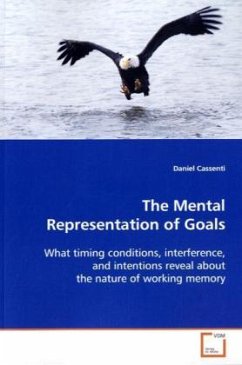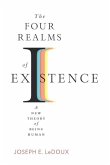Working memory acts as the central executive officer
of cognition. It drives human action by coordinating
perception, memory, and motor processes with a
prioritized set of instructions as events unfold
over time. There is still much to explore on the
nature of working memory. These studies shed light
on one important piece of working memory that has
been infrequently explored, the importance of goals
and how they are represented in working memory. Four
experiments manipulated timing conditions, memory
loads, and extraneous events in an event counting
paradigm to reveal that greater time to process
information also leads to over-rehearsal,
distraction, and a tendency to make more errors.
These results imply a redefinition of working
memory s central executive function from more
traditional accounts. The results also drive
compelling conclusions addressing storage, linking,
and triggering of goal representations. Number
representation, error detection, and cognitive
modeling are explored.
of cognition. It drives human action by coordinating
perception, memory, and motor processes with a
prioritized set of instructions as events unfold
over time. There is still much to explore on the
nature of working memory. These studies shed light
on one important piece of working memory that has
been infrequently explored, the importance of goals
and how they are represented in working memory. Four
experiments manipulated timing conditions, memory
loads, and extraneous events in an event counting
paradigm to reveal that greater time to process
information also leads to over-rehearsal,
distraction, and a tendency to make more errors.
These results imply a redefinition of working
memory s central executive function from more
traditional accounts. The results also drive
compelling conclusions addressing storage, linking,
and triggering of goal representations. Number
representation, error detection, and cognitive
modeling are explored.








